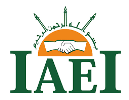Implementation of Islamic Business Ethics in Small and Medium Micro Enterprises (Msmes) in Jambi City
Abstract
This study discusses implementing Islamic business ethics in micro, small and medium enterprises (MSMEs) in Telanai Pura Jambi City. This research is a qualitative descriptive study, with data collection methods, namely interviews, observation, and documentation, and data analysis techniques, namely data reduction, data presentation, and conclusion drawing. The informants in this study were MSME actors, namely MSME owners, employees, buyers, and the local community. The results of this study indicate that the MSME actors have understood Islamic business ethics, believing that all transactions carried out are by Islamic teachings. MSME actors have also implemented Islamic business ethics principles, namely the principle of unity (tawhid), the focus of justice ('Adl), the principle of free will (Ikhtiar), the principle of responsibility (responsibility), and the principle of honesty (Siddiq). The application of these principles has been implemented into managed MSMEs, namely in the form of friendly and courteous service to customers, not neglecting prayer times, being generous, behaving honestly and fairly in the business being undertaken, selling good and decent goods, setting reasonable prices, always instilling an attitude of responsibility in doing business and always trying and believing that only Allah SWT is the one who controls the sustenance of his servants.
Keywords : Islamic bussines ethic, MSME actors
Full Text:
PDFReferences
Auliyah, R. "Perilaku Mahasiswa Akuntansi Sebagai Pebisnis Di Luar Kampus Di Tinjau Dari Teori Etika Bisnis". Jurnal Berkala Jemu Ekonomi, 2012, pp. 6, https://journal.trunojoyo.ac.id/neo-bis/article/view/556.
Hasan Aedy, "Indahnya Ekonomi Islam", Bandung: Alfabeta, 2007, pp. 26-27.
Abdul Aziz, "Etika Bisnis Perspektif Islam", Bandung: Alfabeta, 2013, pp. 22.
R. Lukman Fauroni, "Etika Bisnis dalam Al-Qur'an", Yogyakarta: Brilliant Lkis Printing, 2006, pp. 144-158.
Tulus Tambunan, "Micro, small and medium enterprises in times of crisis: Evidence from Indonesia", Journal of the International Council for Small Business, Volume 2, Issue 4, 2021. https://doi.org/10.1080/26437015.2021.1934754
Ministry of Cooperatives and SMEs of The Republic of Indonesia, Jakarta, 2017.
Putri Jamaica, I Wayan Subagirta, Sebastiana Viphindrartun, "Analisis Faktor Yang Mempengaruhi Pendapatan Pengusaha Mebel DiKecamatan Leces Kabupaten Probolinggo", Probolinggo Regency, Jember University, 2014, pp. 2.
Rulam Ahmadi, "Metodologi Penelitian Kualitatif", Yogyakarta: Ar-Ruzzmedia, 2016, pp. 119.
Djam'an Satori, "Metodologi Penelitian Kualitatif", Bandung: Alvabeta, 2013, pp.104.
Sugiyono, "Memahami Penilaian Kualitatif", Bandung: AL-VABETA, 2015, pp. 82.
Law of the Republic of Indonesia Number 2 of 2008 concerning Micro, Small and Medium Enterprises. 2008.
Rafik Issa Bekuun, "Islamic Business Ethics", Yogyakarta: Learning Library, 2000.
DOI: http://dx.doi.org/10.30829/jombi.v4i02.12874
Refbacks
- There are currently no refbacks.
Copyright (c) 2022 Rudi aldo







